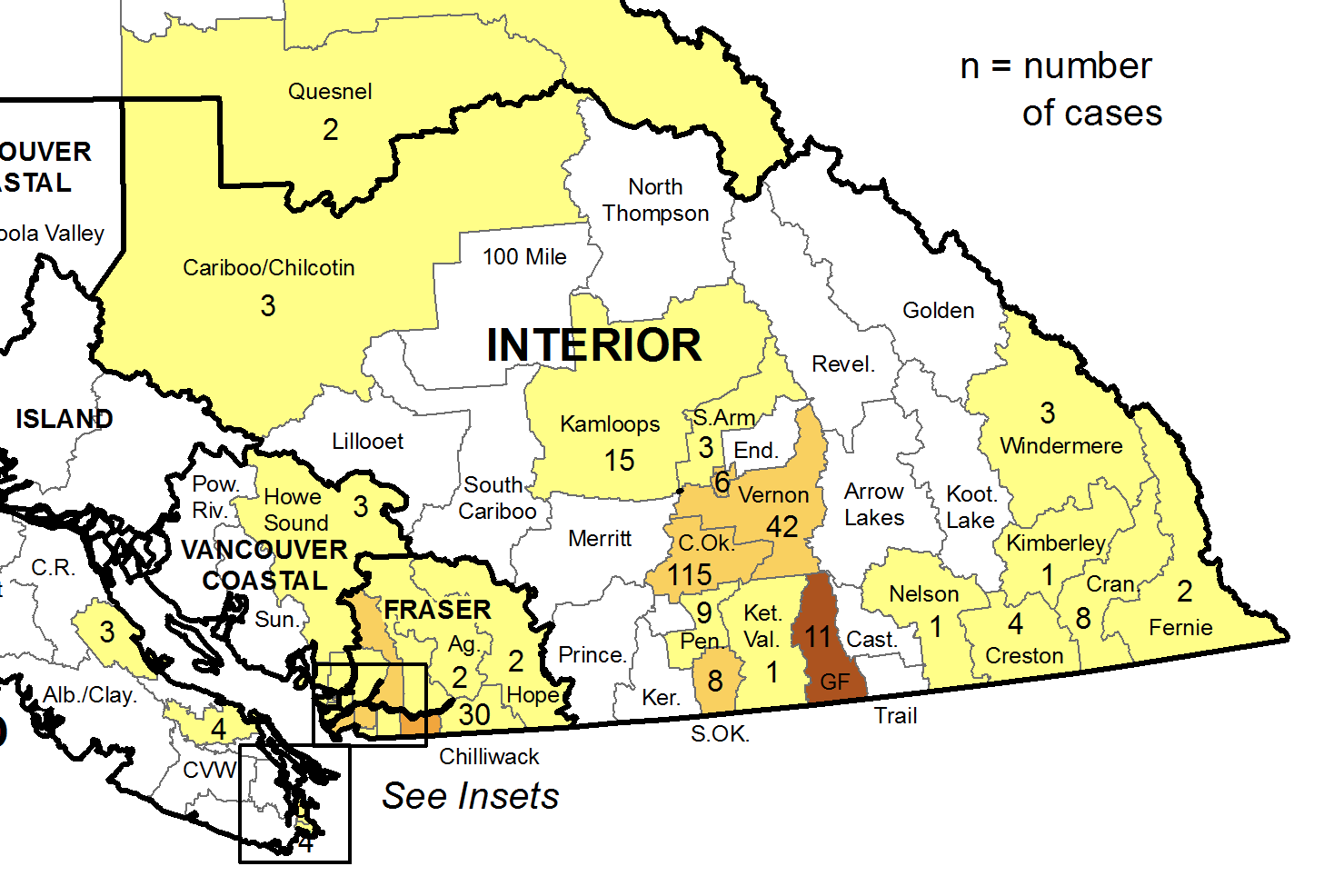Grand Forks see spike in new COVID-19 cases — BCCDC
While hospitalizations due to COVID-19 continue to decline in BC, the Grand Forks region saw a spike in cases between May 30 and June 5 according to the BC Centre of Disease Control Graphic Distribution map of the province.
Grand Forks topped the Kootenay Boundary region with 11 new COVID-19 cases.
Cranbrook was next with eight new COVID-19 cases with Creston and Windermere reporting four and three, respectively.
Fernie recorded two new COVID-19 cases while Nelson reported one.
Revelstoke, Golden, Arrow Lakes, Kootenay Lake, Castlegar and Trail each reported no new COVID-19 cases.
Thursday, Dr. Bonnie Henry, B.C.’s provincial health officer, announced that there were 153 new cases of COVID-19, for a total of 145,996 cases in British Columbia.
The total saw BC report less than 200 new COVID-19 cases for the fifth consecutive day.
“As today’s modelling presentation shows us, British Columbia is in a good position to continue to safely move forward with BC’s Restart plan. Community transmission, hospitalizations and deaths are all declining as immunizations are going up,” Dr. Henry said.
“The key to our success is all of you – first to lessen the spread and now to get immunized. We are grateful for how you have done and continue to do your part.”
BC also reported 176 people in hospital due to COVID-19, down from 195 on Wednesday.
There are 49 people in intensive care.
Unfortunately, Dr. Henry announced four deaths in the past 24 hours — two of the four deaths were in people older than 80, while one was a person in their 50s and the other in their 60s.
Dr. Henry reported74.9% of all adults in B.C. and 72.8% of those 12 and older have received their first dose of a COVID-19 vaccine. In total, 3,823,103 doses of Pfizer-BioNTech, Moderna and AstraZeneca COVID-19 vaccines have been administered in B.C., 443,562 of which are second doses.
“It is important to note that invitations to book a second dose will only be sent after eight weeks. At this point, given the strong demand, appointments are being booked in most locations two to three weeks later,” Dr. Henry said.
“This interval is well within the safe range for everyone and data shows it may lead to a stronger and longer-lasting immune response.”






















